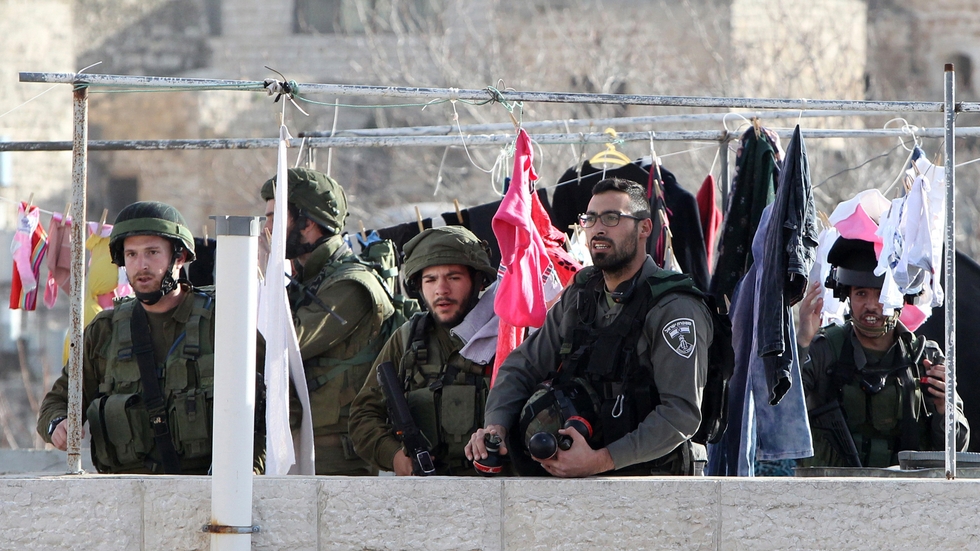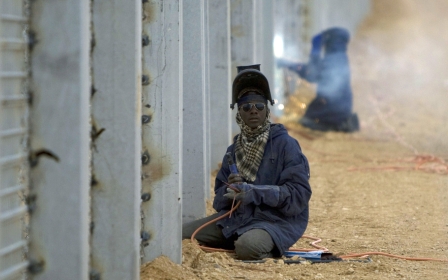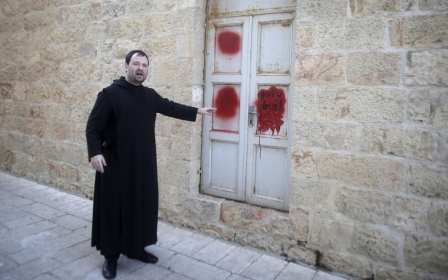Clashes erupt as Israeli settlers take control of homes in Hebron

Dozens of Israeli settlers entered two homes in a building in the centre of the Palestinian city of Hebron on Thursday, sparking violent clashes over disputed ownership claims.
The building stands near a religious site known to Jews as the Cave of the Patriarchs and to Muslims as the Ibrahimi Mosque in the occupied West Bank city.
"A group of dozens of settlers accompanied by rabbis broke into a building on Shuhada Street,” Jawad Abu Eisheh, an activist with the local Youth Against Settlements group, told AFP.
He said there were also Palestinians living in the building at the time.
Yishai Fleisher, a spokesman for the local Jews, said the homes had been bought from the residents legally - who had left ahead of time.
The move had not been coordinated with the army beforehand, he said, "for fear of leaks and efforts to try to stop it".
Israeli forces, however, were later seen protecting the settlers as locals started to pelt them with stones.
Soldiers responded with sound grenades, and a number of injured Palestinians were taken to hospital, an AFP correspondent said.
An army spokeswoman later said the clashes had subsided.
Israeli Immigration Minister Zeev Elkin praised Hebron's settler community for "the determined move to expand the Jewish presence in the City of our Patriarchs".
"I call on the defence minister to give the settlers all the help he can, and not give in to the pressures of the Palestinian rioters."
Defence Minister Moshe Yaalon would have to approve the settlers' move, which would in effect expand the boundaries of the Jewish enclave in Hebron.
A police spokeswoman said that a court-issued order has "frozen the situation" until a final decision is taken.
Under Palestinian law, it is illegal to sell homes to Israelis in the West Bank.
Hebron, with a population of about 200,000 Palestinians, is also home to about 500 settlers, who are protected by Israeli forces.
Jewish settlements in the West Bank, which Israel seized in the 1967 Middle East war, are illegal under international law.
Middle East Eye propose une couverture et une analyse indépendantes et incomparables du Moyen-Orient, de l’Afrique du Nord et d’autres régions du monde. Pour en savoir plus sur la reprise de ce contenu et les frais qui s’appliquent, veuillez remplir ce formulaire [en anglais]. Pour en savoir plus sur MEE, cliquez ici [en anglais].




